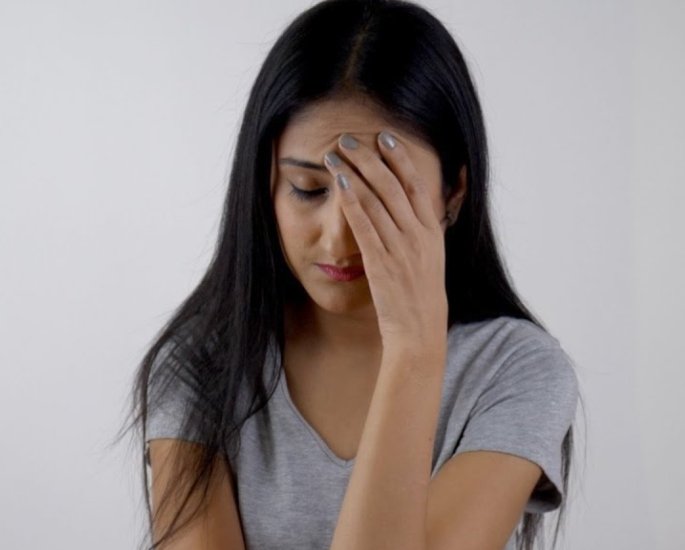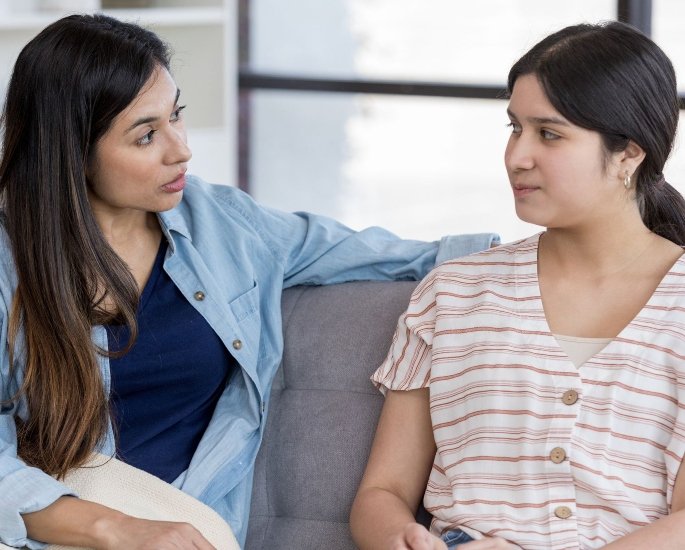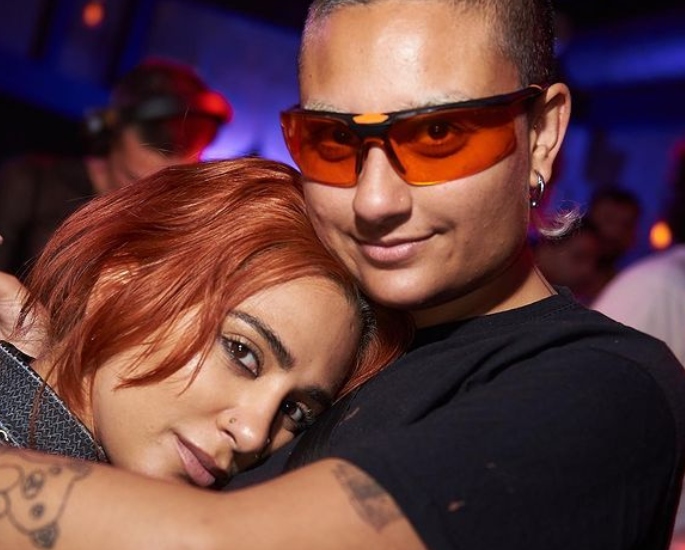How I Came out as a Lesbian to my South Asian Parents
Whether a person is gay, lesbian, transsexual, bisexual, a tremendous amount of stigma lingers in relation to this.
Although wider society is making progress towards more inclusive communities, some South Asian families within the UK still find this topic taboo.
This transcends to even younger generations who are exposed to certain narratives regarding sexual identities.
However, this has not stopped a rise in more people identifying as a specific orientation.
In May 2021, the Office for National Statistics (ONS) emphasised this by revealing that as of 2019:
“An estimated 1.4 million people aged 16 years and over (2.7% of the UK population) identified as lesbian, gay or bisexual (LGB) in 2019, an increase from 1.2 million (2.2%) in 2018.”
Although the statistics highlight one aspect, for British Asians, coming out as something other than heterosexual is an entirely different thing.
Confusion, shame and even disgust play a role in how some Desis feel towards their own family members and/or friends.
Some South Asian parents living within the UK are certainly believers in these outdated ideas regarding homosexuality.
This makes it extremely difficult for people to come out as lesbians to their elders.
So, it is important to highlight the experiences of some British Asians and the hurdles they faced.
Trying to Find Yourself


With many people dealing with issues of identity and sexual orientation, it can be hard to understand why certain feelings arise.
Kids and teenagers grow up within different households and circumstances.
However, in most Desi families, there are certain heteronormative narratives enforced onto people.
But, what about when children/teenagers and even adults feel emotions that deviate from the viewpoints of their parents/elders?
This is how Harinder Gill* felt when she was in secondary school. The 23-year-old is a student at Nottingham Trent University but battled with her younger self out of confusion:
“From when I was in school, my close mates would talk about boys they’d fancy.
“We’d go to parties and then have a gossip in the toilets about which boy is being flirty and if anyone is going to make a move.
“I’d join in and then if my friends asked me if there was any boy I liked, I’d just say no and that was it. Nothing major, I just thought none of them was attractive.
“Then as we all started to grow up, boys and dating became a big thing of our conversations. Even the other Asian girls would point to Asian boys they liked.
“There were always groups like that in school and even though I was close to the Asian guys, I didn’t think of them like that.
“Sometimes I’d wonder why. Even when I came back home, my older sister would chat to me about boys at university and it’s kind of all I knew when growing up.
“You see it at weddings all the time. Boy and girl, man and woman, that’s the way it’s ‘supposed to go’.
“But I constantly felt confused. Like surely I’m going to like one boy. Even celebrities, I thought ‘yeah he’s nice’ but never ‘omg I wanna marry him’.
“In all honestly, it took me a lot of time to figure out what was going on. How was I supposed to know?
“These things weren’t talked about enough back then and they certainly aren’t talked about by Asian families.”
“It just clicked for me. I was in school and saw a girl walk past and thought ‘wow’.
“In my mind, it was innocently admiring someone but it happened more and more. That’s when it clicked.
“I knew what I was, I didn’t understand why or how but I knew it.”
Harinder’s journey of understanding who she is is similar to many British Asian women. However, for others, this self-revelation isn’t as welcomed.
Saira Uddin* is a 20 year old British Asian based in Birmingham. Her understanding of relationships was based upon the ideas she was taught at home.
Therefore, she had a tough time dealing with needs and desires that differed from that:
“I didn’t really talk about boys in school or at home, it was quite strict in our household when it came to stuff like that.
“My friends would talk about their dating life, even when I was young, and I just kept thinking ‘what would your parents think?’
“I joined in with laughter and smiles but I didn’t have any other lesbians around me providing a different type of conversation.
“To be honest, even if I did, I’d probably not listen and think that was against my beliefs. But looking back, those chats would have been vital for me.
“Once I was in sixth form, my parents were a tad more lenient. Would let me stay out till later or have a sleepover with friends.
“Some of them were white, some of them Asian but all of them spoke about how fit guys were in the year above.
“But I noticed by then, I’d catch glimpses of girls from the year above instead. To be honest, I just thought it was seeing someone’s beauty.
“My mum said my cousins were beautiful and my aunties always said it to me.
“I dated one boy when I was in my last year of sixth form. My first boyfriend and everything was quite steady.
“It didn’t quite work out but I actually dated someone a couple of months after.
“In between, I kept having this feeling towards other girls. I always felt more comfortable looking at them than I did boys.
“When I felt differently and started to understand more, I denied it. I was scared.
“So, I dated more, spoke to boys more, did everything I could to change my outlook on my feelings. But nothing worked.
“It made me feel so conflicted. Trying to understand why you feel a certain way which is the opposite of what you’ve believed your whole life is mentally draining.”
This exemplifies how even before coming out to their parents as lesbians, British Asians must deal with other factors about themselves.
It is not just accepting one’s identity but also realising how this goes against the beliefs of your family and in some cases, culture.
Coming Out


With such a strong culture surrounding homosexuality within Desi communities, coming out as either gay or lesbian is challenging.
Not only do you have to deal with your family’s reaction, but those of the wider family and community.
It’s no surprise within South Asian culture that news travels fast. So in some cases, sensitive revelations like this are no exception.
But, in hopes of redefining the narrative of coming out and helping others do the same, Harinder spoke about her coming out chat with her parents:
“My parents weren’t exactly strict. But yes, in Indian and Asian families in general, being lesbian remains a secret.
“My parents weren’t exactly homophobic but my dad would sometimes make a joke about a girl at a wedding or my mum would have a gossip with my thai (auntie).
“So I was already stressed enough thinking what if they think like that of me. What if they think I’m disgusting or something?
“I was in my room for several hours on a Sunday just imagining how to tell them, what to say, how to act.
“Then I was thinking if I get thrown out, where would I go, who would I speak to, what could I tell people?
“I went down and turned the TV off straight away.
“I told them I had something to get off my chest and they immediately got concerned thinking it was something about school – typical.
“But I went on to explain the kind of thoughts I was having, my emotions and feelings towards relationships.
“They tried to interrupt me and almost stop me but I talked over them because I couldn’t keep it in, I was a mess.
“I thought let me just come out with it and explicitly said ‘mum, dad, I’m a lesbian and I’ve felt like this for a while’.
“I started to break down and I could see my dad’s face sink, my mum was just looking down.
“My mum just shouted over me ‘no you’re not, you’re just going through puberty’. What type of backwards response is that?
“My dad agreed but was quick to say what would people say and ‘you can’t be, that’s not possible’.
“Right there and then, I felt so lost and lonely, like I wasn’t their kid anymore. They didn’t even comfort me and I just ran upstairs.
“I have never felt so angry, sad, confused and distraught in my life.
“The worst thing is I had no one to turn to because I felt the response was gonna be the same.”
“Even my sister moved away and if I called her, how would that affect me and my parents’ relationship?”
This emotional interaction left Harinder feeling heartbroken as many British Asians do when coming out as a lesbian.
It’s this initial reaction that continues to burden those that go against the ‘traditionalist’ views of some South Asian families.
Saira spoke briefly of her story. Although her coming out conversation had similarities to Harinder, there were some surprisingly stark differences:
“My parents were proper strict and given this, I wasn’t even sure I was going to come out to them.
“My brother used to take the mick out of gay or lesbian people, and I would go along with it so I didn’t get found out.
“But it started to overwhelm me. Hiding myself, my interests, my desires.
“I had to do it. I actually cried for a week straight before the day came because I was so caught up in the what-ifs.
“We were in the car coming back from prayers and I’m not sure what happened but I just said ‘amma, I think I’m a lesbian’.
“It sounds daft I know. My brother hysterically started to laugh, then my dad was angrily looking at me through the rearview mirror.
“There was silence as if I was telling a bad joke. So I said it again – again nothing.
“We got home and I waited for my parents in the living room. I told them we need to talk and I gradually explained how I liked girls.
“I even told them I dated boys (something they didn’t know) to stop feeling this way but they didn’t speak or even look at me.
“My dad just said ‘that’s enough’. I went to my bedroom so confused, asking myself more questions than before.
“Then my mum came up. She sat beside me and gave me a hug and I just fell into her arms. She told me that my dad was angry but we would get through this.
“As I was crying, I kept thinking they’re going to try and ‘fix me’ but I begged my mum to forgive me.
“I’ll always remember this, she gave me a tissue, gripped me tightly and told me to never be sorry for being myself.”
This shows how both Harinder and Saira felt similarly in the lead up to coming out as a lesbian.
Although their families reacted similarly, Saira’s showed some more compassion and acceptance.
Saira highlighted it was refreshing for her to feel her mother’s understanding but admits that her father is still reluctant to talk openly about her identity.
Progress is Coming


In contrast, Harinder revealed that her parents did not accept her coming out as a lesbian. She stated:
“After that day, me and my parents didn’t talk for days. They’d avoid me and any room I went in, they would leave or sit in silence.
“My mum would put prayers on more and there was less joking around. When my sister came to visit, that was my relief but she couldn’t convince my parents to feel a type of way.
“I felt like a stranger in my own home. We had some family parties and even there, they’d mutter one or two words to me.
“It was like I brought same upon them and the family.”
“When I went to university, they helped me, gave me a hug and that was pretty much it.”
Unfortunately, Harinder’s circumstances mirror those of many British Asian women.
But, she highlights that she wants “more women to have the strength to come out and do not shy away from themselves”.
These stories are compelling but only portray a crumb of what British Asian lesbians have to go through.
Harinder and Saira both hope their journeys amplify the voices of British Asian lesbians to come out.
However, with the help of more organisations and awareness, the narrative around identity is progressing.
Platforms like British Asian LGBTI and Queer Asia are incredible in helping communities to become more inclusive.
This is through campaigns, vital discussions and charity work that allows more families to understand how culture needs to progress along with society.
Even for the younger generation, places like Hungama celebrate the queer scene with a Bollywood club night in London.
Hopefully, this aids in progressing the cultural landscape surrounding homosexuality.